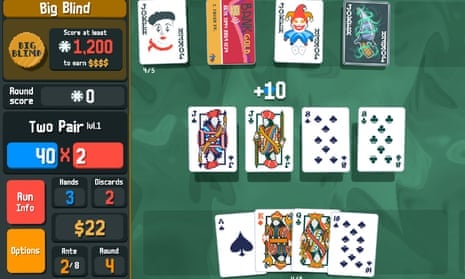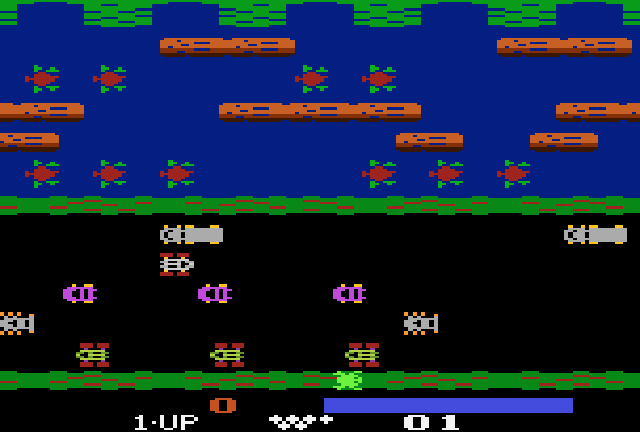A False Universe of Pure Imagery
2024-03-22
2012 was the year I became a father, the year of the London Olympics and my first year of teaching an undergraduate module on Poetry and Performance. I had previously taught poetry to adults but these were people who paid out of their own pockets to learn about poetry in the hope of getting published, getting booked for gigs or just being part of a mutually supportive cohort. The mature students were still like this at degree level, but I was relatively inexperienced with undergraduates who had just left school.
I remember one student who was always typing away at their laptop with a little smile on their face. On seeing this, I naturally assumed that I was excelling in my duties as an educator and that they were completely immersed in the joy of study as a result. It was only when I marked their first assignment that I realised that they had not being paying attention at all and that they were probably scrolling through their social feeds and admiring the cat gifs.
My 2012 cohort probably had smartphones but they were still relatively new and niche. The iphone was still a luxury product and the Android alternatives were either just as expensive or were barely-functional potatoes. Back in the early 2010s there still seemed to be an element of inhibition when it came to using your phone during a lesson. These days, I often notice that some students hold their phone under the table and then glance at it from their seated position in such a way that implies there's something intensely interesting under there, like a mouse in a little costume has just climbed into their lap.
Anyway, back to that 2012 classroom. The module often made use of YouTube clips of poetry performances and one lecture was about paratext – the talk that frames the performance rather than the poems themselves. On my trawl through YouTube for materials, I found this little gem featuring Allen Ginsberg.
transcript: if you will keep your mind on the image in front of you which is my face in the camera or in your TV tube or screen TV – and realize now I'm looking from the other side of directly into a little black hole – imagining that you were there and also imagining what would be possible to say that would actually communicate through all the electricity and all the glass and all the dots on the electric screen – so that you're not deceived by the image seen but that we are both on the same beam – which is you're sitting in your room surrounded by your body looking at a screen and I'm sitting in my garden with my body with noise of cars outside – so that we're at least conscious of where we are and don't get hypnotised into some false universe of just pure imagery – so that in other words you're taking the film in front of you as an image with a grain of salt – as an image rather than as a final reality and so that you don't get deceived by either my projections or the projections of the newscaster who will follow
Being that this clip was shot long before the advent of laptops and smartphones, it's amazing how prescient it is about the electronic screen and the image that we must take with a pinch of salt in order to not be pulled into a "false universe of pure imagery". I still play this clip to students today and it maintains its power to provoke a moment of insight.
When we watch Ginsberg speaking on our screens, we know that, in our time of watching, he is dead. And yet, he seems so present in this clip as he addresses the viewer directly in their present moment. By drawing attention to his own physical bodily presence and then immediately imploring the viewer to become aware of their own bodily presence, both the viewer and speaker join together in their experience of the "now" – despite being separated by half a century of chronological time and death itself. I often joke about how this video should be used as a health warning before any video plays. I have lost count of the number of times each day where I allow myself to be pulled into that false universe of pure imagery.
I've spoken about this already in my essays and in my videos but it's worth mentioning again. None of us asked to be born, and so in moments when we're at a loss, there's no shame in filling them up with things that are designed to salve that inherent despondency that arises in response to our sudden awareness of our aliveness. The feeling that we are always wasting time instead of doing something great makes us just as miserable as the feeling of distraction. And, as I've pointed out previously about the Death Drive, distraction is a perfectly healthy response to the unreasonable demands of the Will.
That said, not all forms of distraction are equal. I love gaming as much as I love any other art form, and yet, there were games that brought massive emotional payoffs or brought me moments of pure awe that (almost) rival moments of awe in the real world. Not only that, moments of wonder in the digital world have often fed back into my experiences in the real world. I still remember seeing the Shard during my Tuesday night walk to the Poetry Cafe from Blackfriars station, and wondering if there was a Korok seed at the top of it. I remember how I finally got round to finishing Red Dead Redemption during the first year of the the pandemic and how John Marston's struggles to protect his family mirrored my own concerns as a plague that we knew very little about arrived at our doorstep.
And, on the other (quite literal) hand – there's Balatro. If you're not up to date with the current gaming zeitgeist, Balatro joins a list of games from the roguelike genre, where the urge to play "one more run" completely dominates other urges such as "make dinner for your family" or "go to bed, it's 2am and you have work tomorrow".

Much like Vampire Survivors from a few years back, Balatro is full of finely-tuned skinner boxes that keep your brain's anticipation and reward centres boiling over. It's a simple enough mix of poker and solitaire, where you play poker hands in order to hit a required score. On this simple foundation, the tried and tested "deck builder" mechanic is overlaid – one were you can modify the cards in your deck, enhance them with jokers and tarot cards, and add or subtract cards from the deck itself. The real buzz comes from the countless synergies that can be created from all of these combinations, meaning you never play the same deck twice, meaning that every playthrough is also different.
But all of these fine details don't really matter, not for the purposes of this essay. I could tell you about the many hours I spent playing this game, truly struggling to put it down when I had better things to do. When I'm on the lookout for a new game to play, a pastime that might waste more time than gaming itself, I often look for how many hours other people are spending with it. Sinking over a hundred hours into a game that costs just over a tenner seems like a really good deal but I don't think this is a good metric for choosing a game.
All of my devices list my game libraries and the one piece of information that accompanies each listed game is how many hours I've put into it. They're easy to count and share so it's not surprising we put so much stock in them. But there is nothing in that list that tells me or anyone else how I felt while playing those games.
There are some games that I only played for a few hours, Abzu and A Short Hike Come to mind, but those games had me feeling all kinds of things as I played them and they changed how I engaged with the world and other people after I finished them. For all of those hours I spent playing Balatro, I remember a few distinct points where I knew I wasn't enjoying it at all. And after I finally put the game down to perform my professional or familial duties, I felt utterly drained.
Other deck builders had similar effects on me. I remember having to delete Marvel Snap from my phone because it would add actual anger to the array of not-fun feelings it provoked. I'm not saying that these games might make you feel the same things, I'm just being honest about how they affected me.
I think we should be applying this question to everything in our lives, not just for the apps that we use every day that aren't games, though they often use many game-like mechanisms to keep us using them. We should ask the same things of our jobs, our relationships and the places that we live in too. How do they make us feel?
I've not really tried modern Virtual Reality and my own past behaviour merits that I err on the side of caution with regard to that particular universe of false imagery. But I recently read something in the the New Yorker from VR pioneer and social media sceptic Jaron Lanier and it really got to the heart of the interplay between powerful digital experiences and how they feed back into our experiences of the physical world.
When I put on a V.R. headset, I still notice that I am floating there, that I exist independently of the information I experience. But then there’s the moment I take off the headset, which is the very best. In the nineteen-eighties, we used to try to sneak flowers or pretty crystals in front of people before they would take off their headsets; it was a great joy to see their expressions as they experienced awe. In a sense, this was like the awe someone might experience when appreciating a flower while on a psychedelic drug. But it was actually the opposite of that. They were perceiving the authentic ecstasy of the ordinary, anew.

Where Will Virtual Reality Take Us? | The New Yorker
Apple’s Vision Pro headset suggests one possible future—but there are others.
When it comes down to it, the interaction between the physical world and digital experiences isn't too different to how the world of sensory experience intersects with the world of the imagination. The digital world can also work as an intermediary between the two. Digital worlds and tools can enhance our sensory experiences and our imaginative moments of escape or strategy. It's how we catch ourselves feeling in the midst of these thralls that counts.
Incidentally, I was wondering how Ginsberg would have felt about our current digital worlds and video games in particular and then I remembered reading an essay a few years back in which Tyler Stoddard Smith remembers the time during his childhood when the poet stayed at his house.
https://www.identitytheory.com/beat-house/His parents were hosting Ginsberg for a reading at the local university and the young man was startled to find the Beat icon looking for juice in his kitchen when he woke up one morning. The parents came down shortly after and introductions were made. Other minor calamities took place (feel free to click the link and read the essay to find out) but the part of the article that I remember involved the boy switching on his Atari 2600 and Ginsberg sampling the joys and frustrations of Frogger:
Ginsberg began to take a liking to Frogger. He had interesting questions about the frog’s motivation and the ephemeral qualities of the driftwood logs. He even managed to make it to Level 2 at which point my pre-pubescent male pride swelled up and I made him wait for thirty minutes while I racked up as many points possible. I believe he understood my behavior, as all poets and children are innocent, albeit fierce competitors.
The poet and the boy later took on the tank battler "Combat", which Ginsberg quickly developed an aptitude for:
I have never, in all my years, taken a beating so badly at “Combat.”
“It’s the angles, man,” he said to me. “You have to look at the angles. Anticipate where your shells are going to bounce. You can’t be too aggressive. You have to wait…wait…wait for the right moment” then BANG, my pastel green tank exploded in a blast of low-res gore, leaving me hopping mad and Ginsberg eager for more.
When Stoddard Smith's father politely interrupted to say that lunch was about to be served, Ginsberg replied with all the beatitude of an eleven year old being told that it's bedtime when they're down to the last handful of competitors on a session of Fortnite:
“One damned minute,” he growled, maneuvering his tank toward a bunker.
“Yeah, dad, one damned minute,” I aped. My father began to grumble something about how “profanity would not be tolerated in my house,” but Ginsberg set him straight.
“Forgive them father, said the man on the cross one Friday long ago,” he said, proceeding to annihilate another one of my tanks.
I can't help but wonder if Ginsberg had similar feelings about those Atari classics. How Frogger seemed to inspire introspection and curiosity despite its intense survivalist gameplay. Whereas Combat seemed to reduce the great spiritual communicator to the same dopamine addled state of reptilian compulsion that these finely honed skinner boxes are designed for.
The very fact that the person who was so articulate about how we can fall into the trap of varying simulations of reality was just as fallible to them doesn't discredit that initial message. We should be careful, or at least aware, of how we are wrenched from our sense of presence in the physical world by whichever electronic universe grabs out attention. But if that is too big an ask, we should also keep interrogating how these false worlds make us feel and how we carry those feelings into the real world when we return from them.

Thanks for reading this
Funnily enough, Balatro almost kept me from being able to write this essay. I'd normally have an idea of what I was planning to write at the beginning of the week but, come Monday morning, I was drawing a blank for this one. It was only when I stopped playing that bloody game in my scarce leisure hours that I seemed to return to my normal functioning and the idea finally arrived by Tuesday evening. I took this as a good enough sign for me to delete the game from my Steam Deck.
Being that it's not had as much time in the oven, I hope that it's not arrived in a premature and undercooked state. I made a little promise to myself that I will knock out at least one of these a week until the end of the year. I'd love to know how what you, my subscribers and readers think of this. Did you prefer it when I published on more of a monthly basis? I'd love to hear what you think.
Niall
My weekly essays are given freely, there's no pressure to give back but if you'd like to, any of these would help:
Subscribe – A new subscriber always gives me a warm feeling. There's no better indication that you're creating something valuable than seeing your audience grow.
Spread the word – Much like the above, if you enjoyed this or anything else on Rusty Niall, please consider telling someone else about it.
Upgrade to a paid plan of your choosing – If you feel that my work is worth the price of a monthly cup of coffee and it's within your means, you can click the upgrade button and choose the monthly amount you'd like to pledge. It's completely up to you whether it buys a styrofoam cup of Mellow Birds from a burger van on a trading estate or a vodka martini from a Soho members bar. It's all good, it's all up to you and you are free to adjust or cancel whenever you wish.
Say hello! – Comments are always open, I'd love to hear what you think.
Don't miss what's next. Subscribe to Rusty Niall:
Add a comment: